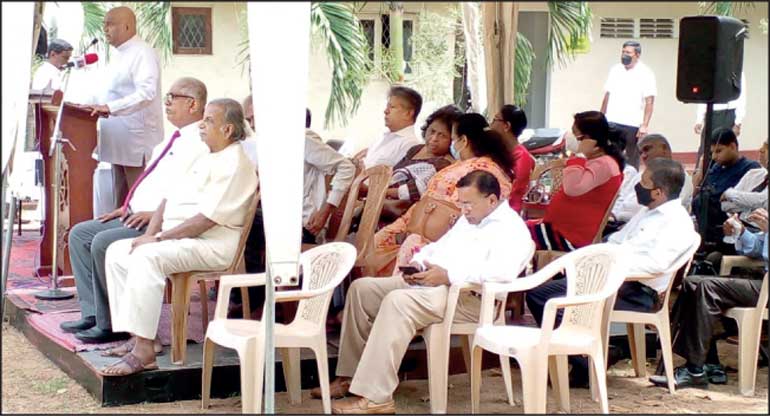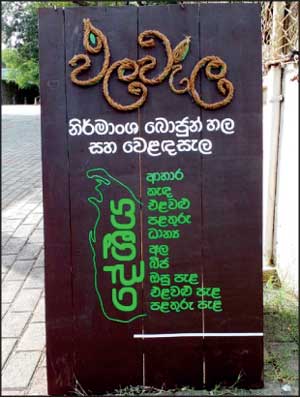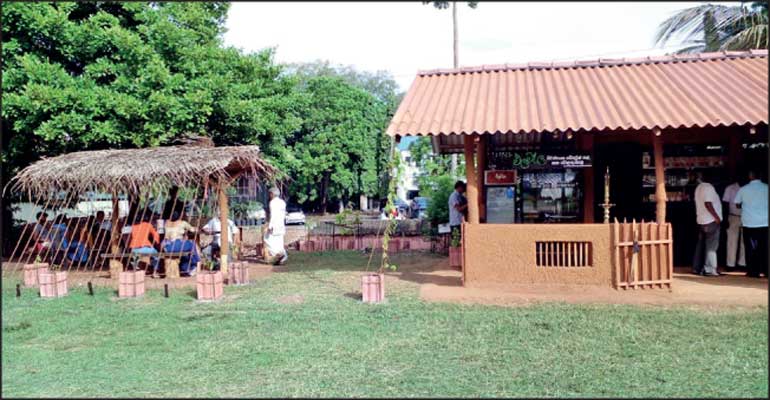Monday Feb 23, 2026
Monday Feb 23, 2026
Saturday, 13 August 2022 00:10 - - {{hitsCtrl.values.hits}}

 What is sustainable entrepreneurship? First let us dissect the word sustainable which encompasses the meaning of ‘sustain.’ To sustain means to continue and therefore indicates lasting impact or being able to last out the test of time as long as practically possible. The word able means to succeed in something. The words ‘sustain’ and ‘able’ combined brings us the word ‘sustainable.’
What is sustainable entrepreneurship? First let us dissect the word sustainable which encompasses the meaning of ‘sustain.’ To sustain means to continue and therefore indicates lasting impact or being able to last out the test of time as long as practically possible. The word able means to succeed in something. The words ‘sustain’ and ‘able’ combined brings us the word ‘sustainable.’
Today, whether it is our food production or our energy sourcing or our lifestyle – almost none of it is sustainable – and some six years ago it was warned by climate change specialists that if we continue to treat our planet the way we do that in less than 50 years we will run out of natural resources to last the world population.
“Food is a key offspring of the earth associated historically with authentic sustainability connected with aspects such as biodiversity farming knowledge used in ancient Lanka,” notes Chandra Nimal Wakishta, the President of the All Ceylon Buddhist Congress (ACBC).
“There are hundreds of farmers around Sri Lanka who are practicing this knowledge, cooperating with planet earth and not going against it,” he states, revealing the latest step taken by the ACBC to promote affordable and healthy food as well as create awareness on traditional routes to health.
The organisation, as part of an exhaustive research centred around Buddhist heritage and culture begun in 2018 on nine key areas that included environment, health, farming, natural resources and economy had proposed the setting up of a hub for medicinal plant sale as well as diverse raw indigenous grain varieties produced with non-chemical use by rural farmers.
The idea was fine-tuned by Arjuna Pannilage, a traditional physician in the Sinhala wedakam tradition specialising in environment based food and food production (Parisaragatha ahara). Fulfilling his lifetime passion of promoting local vegetation (Deshiya beeja) and creating awareness on environment based food, he had proposed to the ACBC to set up a traditional food restaurant in an aesthetic setting where the construction of the premises reflects the philosophy of its purpose. Thus located within the premises of the All Ceylon Buddhist Congress in Bauddhaloka Mawatha, has emerged a truly heritage centred restaurant that will welcome all, without any prejudice or distinction and offer wholesome and reasonably priced meals prepared in the Sinhala tradition.
“We have collected a range of indigenous food often thought of as extinct and will be making them available as cooked items,” states Arjuna Pannilage who has for long been looking for a perfect location to set up his dream project.
The All Ceylon Buddhist Congress members who have actively promoted the historic national indigenous medical system of ancient Lanka; Sinhala wedakama (known also as Deshiya Chikitsa) during the height of the COVID pandemic, states that it wants the restaurant to be a place bringing together all Sri Lankans within the common cause of promoting both human and planet health especially at a time when new health challenges such as monkey pox is said to be prevalent globally.
Diverse indigenous food of Sinhala heritage, which often double up as medicine, is made available in packeted and preserved form in addition to fruit as well as vegetable plants and seeds.
This initiative will empower hundreds of small scale farmers island-wide who are using traditional knowledge in agriculture such as biodynamic farming and will assist in the mission of conserving indigenous seed varieties.
“We will be simultaneously starting a movement to nurture indigenous food cultivation by preserving seeds of traditional herb, fruit and vegetable varieties and enabling the public to become aware that even the few of our available indigenous food is facing the threat of becoming extinct,” says Pannilage.
He states that their aim will be to resurrect all the indigenous seeds of Sri Lanka including rice varieties by starting with even one seed and beginning the process with that.
“What we are starting therefore is not just a place where people can eat and walk away but where they can become aware of the health concerns of today to both humans and planet and begin to work consciously towards healing by taking wise decisions about their diet.”
“The more indigenous plants we grow and the more related small industries we promote will help win over the health of both humans and the earth. Indigenous seed varieties of civilisations such as Sri Lanka are highly resistant to erratic climatic conditions caused by man- made destruction to the planet,” he states.
The cooked and non cooked food products are vegetarian and ideal for vegans. The restaurant was launched on 8 August.(SV)
